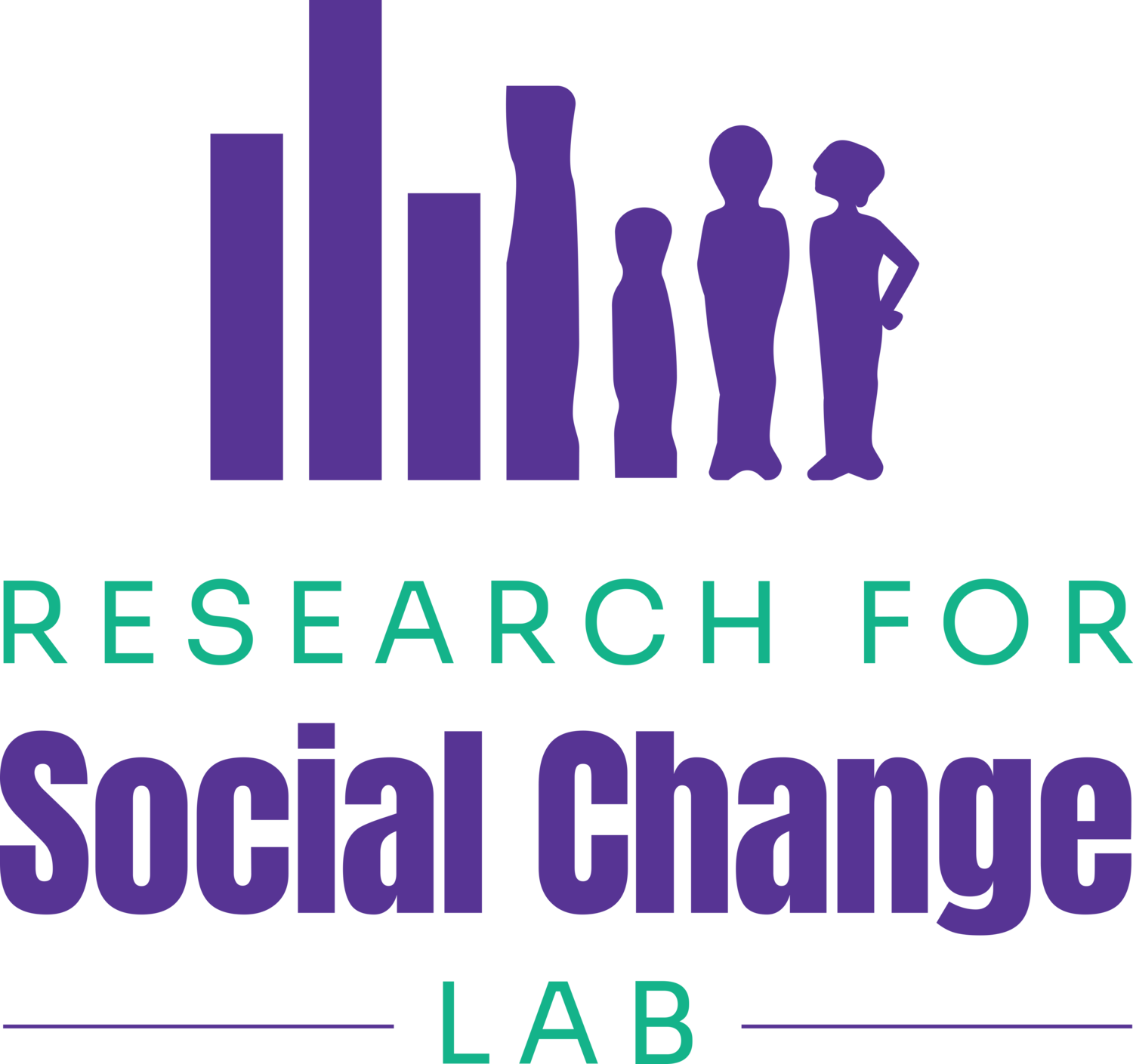Rad Talks on Social Life
Jessica Braimoh, Alex McClelland, Colin Hastings, Maxime Goulet-Langlois, Jayne Malenfant, and Aron Rosenberg.
As part of the Dorothy Smith Open School and Anti-Conference, the Research for Social Change Lab and the Interdisciplinary Social Research Program at Trent University are hosting Rad Talks on Social Life, two panel discussions featuring scholars whose work is inspired by or continuing in the spirit of feminist sociologist Dorothy Smith. The talks are spread over two sessions on May 10, one in the afternoon and one in the evening. They are both at Bagnani Hall at Traill College, Trent University’s downtown campus.
These talks are free, but advance registration is required to ensure we have enough space. Please register here. At the evening panel, there will be complimentary snacks and a cash bar.
Panel One — May 10, 2023, 1:00pm at Bagnani Hall, Traill College
“That’s F-ed up, right?”: Marginalized people’s lives as THE entry into the institutional coordination of systemic oppression.
By Jessica Braimoh (Assistant Professor, Criminology, York University)
In this talk I discuss my use of Dorothy Smith’s notion of the problematic in research with marginalized communities. Throughout I consider the strategies I use to open up these experiences as a starting point for uncovering the power relations that maintain positions of disadvantage and the sites were resistance is possible.
From Adorno to Nunavik: the story of my (ongoing) escape guided by an IE breadcrumb trail.
By Maxime Goulet-Lagnlois (PhD Candidate, Integrated Studies in Education, McGill University)
Lost between grand critical theories and small nonprofit projects, I often felt a hunger for what I came to call relational-situated-critical-pragmatic-political-imaginations. I here offer reflections on some key IE concepts as they helped me read my ruling-relations-compass and sketch some missing maps needed to start hacking joyfully.
Behind the Scenes, Behind the Screens: Investigating and Developing Critical Digital Literacy Practices with High School Students
By Aron Rosenberg (Post-Doctoral Researcher, Research for Social Change Lab)
This presentation explores a research project in which students investigated how their everyday experiences online or with digital tools related to their well-being and the well-being of the planet. Exploring and building on Dorothy Smith's ideas, this research provided a context for analyzing how young people are oriented by and through the social relations bound up in digital technologies and texts, while also looking at and enacting ways by which young people can more actively and critically involve themselves in these relations. Unlike existing critical literacy research that focuses mostly on the content that students engage with, my research broadens the scope of inquiry to also investigate the impacts digital technologies themselves have on students, and the relations between students and the people involved extra-locally in the coordination of students’ experiences with these tools.
Panel Two — May 10, 2023, 5:00pm at Bagnani Hall, Traill College
Mapping HIV public health surveillance systems from the ground up: consent, bodily autonomy, and criminalization
By Alex McClelland (Assistant Professor, Criminology and Criminal Justice, Carleton University)
This talk will examine the concerns from communities of people living with HIV related to consent, privacy, and bodily autonomy, in a context where information from clinical health care encounters is being collected and shared for public health surveillance purposes. Looking at the public health system from the ground up, this project aims to put into question public health practices of objectification.
Implementing Anarchist Methods with Institutional Ethnography: Compromises, Conflicts, and Community-Building in the Everyday Work of Research for Social Change
By Jayne Malenfant (Third Century Fellow, McGill University)
D.E. Smith’s Institutional Ethnographic (I.E.) approach lends itself to carrying out research for activist aims, and inquiry which is grounded in the lived experiences of people. However, I.E. as a methodology is not inherently activist—its application is shaped by the contexts in which it is undertaken, including within highly hierarchical academic institutions. Jayne will discuss how anarchist methodologies, which emphasize the deconstruction of unjust knowledge and power hierarchies, may be used in tandem with I.E. to understand and address power in research projects, grounded in tangible examples from their work in Tio'tia:ke/Montréal and across so-called Canada.
Tracing the social organization of sociotechnical assemblages: Possibilities for an institutional ethnography of digital texts.
By Colin Hastings (Assistant Professor, Sociology and Legal Studies, University of Waterloo)
This paper reflects on how institutional ethnographers can contribute to understandings of text-based work in the context of advancements in artificial intelligence and machine learning technologies. This paper has two main objectives. First, drawing on interviews with journalists who write for online news, I suggest approaches for critical institutional ethnographic studies of sociotechnical systems. Second, while making visible the ruling relations that shape the experiences of those who produce and consume online news, I propose ways that institutional ethnographers might study algorithmic design while supporting social movements that advocate for equity, justice, and social change.



